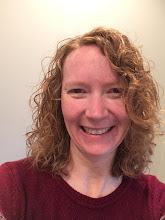I gave a presentation a couple of nights ago about what I have learned about historical fiction. My novel is set in late medieval England. At one point in my presentation I talked about how my novel is a time period historical fiction; in other words, rather than focusing around a specific individual or occupation (or even event), I give a feel for the times instead. I said that my setting is historically accurate, but the story that happens to my main character never would have actually happened in that time period.
At the end of my presentation, an individual asked me why I chose the medieval time period as my setting if the story never could have feasibly happened then. It was a good question, and one I had never thought about before. I believe I gave a decent answer, but I wanted to expand on the answer I gave.
First of all, my story is based on a dream I had several years ago. The medieval time period is what I saw in that dream, so that is just how my story has always been.
Secondly, Anna, my main character, is a very strong female character. I wanted her in a place where she remained strong when everything pushed against her. What other time period where women as oppressed by society, expectations, stereotypes, and even each other as in the medieval period?
Finally, the romanticism of the medieval time period really appeals to me and my story. Now I know that the real life of medieval people is anything but romantic. But it is how people lived back then that fits with my story so well. I have interactions between royalty, wealthy, and commoners. There are few other places in history where when a nobleman speaks with a commoner that it holds so much additional impact and meaning. Castles are not just a neat building tourists visit; they are dark, damp, smelly, miserable places for people to live and sometimes gather. And finally the lack of technology is somewhat integral to my story. Events are set into motion and plot is developed in such a way that would be impossible to achieve in a world with cars, computers, and cell phones. My characters' goals are achieved much better with carts, horses, and relative isolation.
So even though I had never considered adjusting the setting of my story, there are specific reasons why I set it where and when I did. Reasons that I believe only make my story better. And isn't that exactly what the setting is supposed to do?
At the end of my presentation, an individual asked me why I chose the medieval time period as my setting if the story never could have feasibly happened then. It was a good question, and one I had never thought about before. I believe I gave a decent answer, but I wanted to expand on the answer I gave.
First of all, my story is based on a dream I had several years ago. The medieval time period is what I saw in that dream, so that is just how my story has always been.
Secondly, Anna, my main character, is a very strong female character. I wanted her in a place where she remained strong when everything pushed against her. What other time period where women as oppressed by society, expectations, stereotypes, and even each other as in the medieval period?
Finally, the romanticism of the medieval time period really appeals to me and my story. Now I know that the real life of medieval people is anything but romantic. But it is how people lived back then that fits with my story so well. I have interactions between royalty, wealthy, and commoners. There are few other places in history where when a nobleman speaks with a commoner that it holds so much additional impact and meaning. Castles are not just a neat building tourists visit; they are dark, damp, smelly, miserable places for people to live and sometimes gather. And finally the lack of technology is somewhat integral to my story. Events are set into motion and plot is developed in such a way that would be impossible to achieve in a world with cars, computers, and cell phones. My characters' goals are achieved much better with carts, horses, and relative isolation.
So even though I had never considered adjusting the setting of my story, there are specific reasons why I set it where and when I did. Reasons that I believe only make my story better. And isn't that exactly what the setting is supposed to do?

Comments
Post a Comment